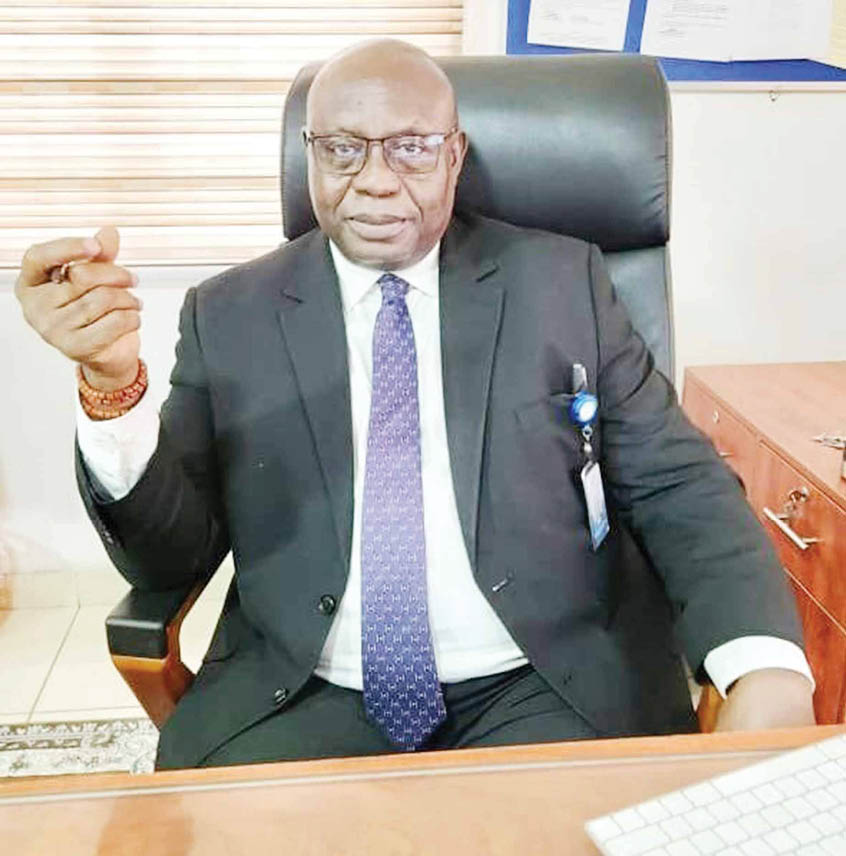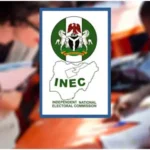A former National Commissioner and Chairman, Information and Voter Education Committee (IVEC) of the Independent National Electoral Commission (INEC), Barrister Festus Okoye, in this interview, tells Weekend Trust why the Constitution should be amended to enable INEC to conduct all elections.
What do you think of the autonomy for Local Governments and how independent can they really be?
No branch of government or arm of government in the peculiar system of Nigerian federalism can claim absolute autonomy or independence. The Constitution of the Federal Republic of Nigeria 1999 (as altered) mandates all organs and institutions of government to work cooperatively and simultaneously independently.
All the tiers and organs of government must maintain a constitutional and legal relationship that guarantees checks and balances. This is because all of them exercise the powers of the Federal Republic of Nigeria and must conform to and abide by the fundamental objectives and directive principles of state policy.
As clearly stated in Chapter II of the Constitution, it shall be the duty and responsibility of all organs of government, and of all authorities and persons, exercising legislative, executive, or judicial powers, to conform to, observe and apply the provisions of Chapter II of the Constitution.
Furthermore, the powers listed in Part II of Chapter I of the Constitution are listed as the Powers of the Federal Republic of Nigeria. These include legislative powers, executive powers, judicial powers, and Local Government System. So, there is nothing called absolute autonomy or independence.
The conduct of governorship and state Assembly elections ought to be within the remit of the states. However, the designers of the Nigerian Constitution felt strongly that it should be domiciled with the Independent National Electoral Commission. The system of Local Government Administration ought to be domiciled with the state governments, that should be the ideal thing, but the Nigerian people feel that the states should not have absolute suzerainty over Local Government Administration and Finance.
INEC has said it can conduct elections at that level; is that the best way to go?
Presently, there are 37 electoral management bodies in Nigeria. We have the Independent National Electoral Commission (INEC) and the 36 State Independent Electoral Commissions (SIECs). The INEC and the SIECs are the creation of Sections 153 and 197 of the Constitution of the Federal Republic of Nigeria 1999 (as altered). Their powers are adumbrated in Parts I & II of the Third Schedule to the Constitution.
The Constitution donates to INEC the power to organise, undertake and supervise all elections to the offices of the president and vice-president, the governor and deputy governor of a state, and to the membership of the Senate, the House of Representatives and the House of Assembly of each state of the federation; register political parties in accordance with the provisions of the Constitution and an act of the National Assembly; monitor the organisation and operation of the political parties, including their finances; arrange for the annual examination and auditing of the funds and accounts of political parties, and publish a report on such examination and audit for public information. The Commission is also empowered to conduct Area Council elections in the FCT.
On the other hand, the SIECs shall have the power to organise, undertake, and supervise all elections to local government councils within the state as well as render such advice as it may consider necessary to the INEC on the compilation of and the register of voters in so far as that register applies to local government elections in the state.
It is important to strengthen Nigeria’s democracy and guarantee the continued existence of the local governments. The federal and state governments must avoid policies, programmes and practices that endanger the continued existence of the local governments. I agree with the Supreme Court of Nigeria that it is unconstitutional and illegal to control the existence and finances of the local governments in a manner that renders them useless.
At present, it is better to integrate the functions of the SIECs into those of the INEC to form one central election management body for the country. The Commission (INEC) can handle the additional burden of conducting elections in 10,000 new constituencies. It is advisable to create an Electoral Offences Commission and divest the Commission of the burden of prosecuting electoral offenders.
Some persons have advocated the scrapping of SIECs, what are your views?
The advocacy for the scrapping of the SIECs has a history. The Electoral Reform Committee (ERC) (2008) (otherwise known as the Justice Uwais Committee) recommended that at the state level, the State Independence Electoral Commission (SIEC) should be re-organised and incorporated within the structure of the INEC to form a single election management body for the country. The state level secretariat of INEC should consist of 37 Directors of Elections, one for each state, and the FCT, appointed by INEC, trained and posted to states other than their states of origin. These directors should be career officers and non-partisan persons of integrity.
The Constitution and Electoral Reform Committee (CERC) (April 2017) was set up by the federal government to, among other things, recommend measures required to improve the electoral process and deepen democracy in Nigeria. It recommended the scrapping of SIECs and the transfer of their functions to INEC. The committee also recommended an amendment of the Constitution to include a provision that INEC shall not be subject to the directive or control of any other authority or person in performing its functions.
It is wasteful to have 37 electoral management bodies in Nigeria. It is rational, expeditious, and smart to integrate the SIECs into one central election management body for the country. This will eliminate staff duplication, duplication of election technology, and other election materials. It will improve and maintain standards and give hope to those who aspire for elective offices within the local government structure.
I was a member of the Electoral Reform Committee (the Justice Uwais Committee). We toured the whole country and listened to and harvested the views of Nigerians including politicians, civil society leaders, traditional and religious leaders, and other critical stakeholders. The sentiments expressed then are the same sentiments still fuelling agitations for the scrapping of the States Independent Electoral Commission. I served as a Civil Society delegate to the 2014 National Conference.
The same issues resurfaced at the National Conference. Integrating the SIECS into INEC will not distort our federalism. It will rather strengthen democracy at the grassroots and give hope to the ordinary people of Nigeria. For me, every country must design what works for it. Textbook application of the federalist argument must not be dumped on us.
Can the local governments truly be pulled away from the apron strings of governors?
Section 7 of the Constitution guarantees the system of Local Government Administration. It unequivocally provides that democratically elected local government councils shall be guaranteed. Accordingly, the government of every state, shall subject to Section 8 of the Constitution, ensure its existence under a law which provides for its establishment, structure, composition, finance and functions.
The operative words in the section are “democratically elected” and “ensuring their existence under a law”. We must strengthen our democratic institutions to make them accountable based on their powers and functions under the constitution.
There is nothing like absolute independence. The local governments must cooperate and work with the state governments to carry out their constitutional functions listed in the fourth schedule of the Constitution. Democracy must operate at the local level and the councillors must exercise their legislative powers otherwise, the country will create a new layer of dictatorship at the local government level.
Strengthening local government administration must not be reduced to direct monetary allocation. However, I agree with the Supreme Court that states retention and use of money standing to the credit of local governments from the Federation Account paid to it for the benefit of local government councils is unconstitutional and illegal.
If INEC should conduct elections at that level, it will help to ensure transparency and level playing field for all parties, because what we have at the moment is a situation where governors decide the winners.
The INEC conducts FCT Chairmanship and Councillorship elections. In the Chairmanship election during the 2019 general elections, the APC won four seats (66.67%) while the PDP won two seats (33.33%). In the Councillorship elections, APC won 34 seats (54.84%), PDP won 27 seats (43.55%) and the SDP won one seat (1.61%).
During the 2022 Area Council elections, the PDP won two Chairmanship seats and the APC won two. The PDP won 43 Councillorship seats while the APC won 19.
The facts are clear and the issues are clear. There must be extensive constitutional alteration before SIECs can be integrated into INEC. As the chairman of the INEC pointed out, there must be a discussion on funding and the mechanics of integration. Democracy at the local government level is a constitutional and legal imperative. Democratically elected local governments are not an option for charity.

 Join Daily Trust WhatsApp Community For Quick Access To News and Happenings Around You.
Join Daily Trust WhatsApp Community For Quick Access To News and Happenings Around You.

